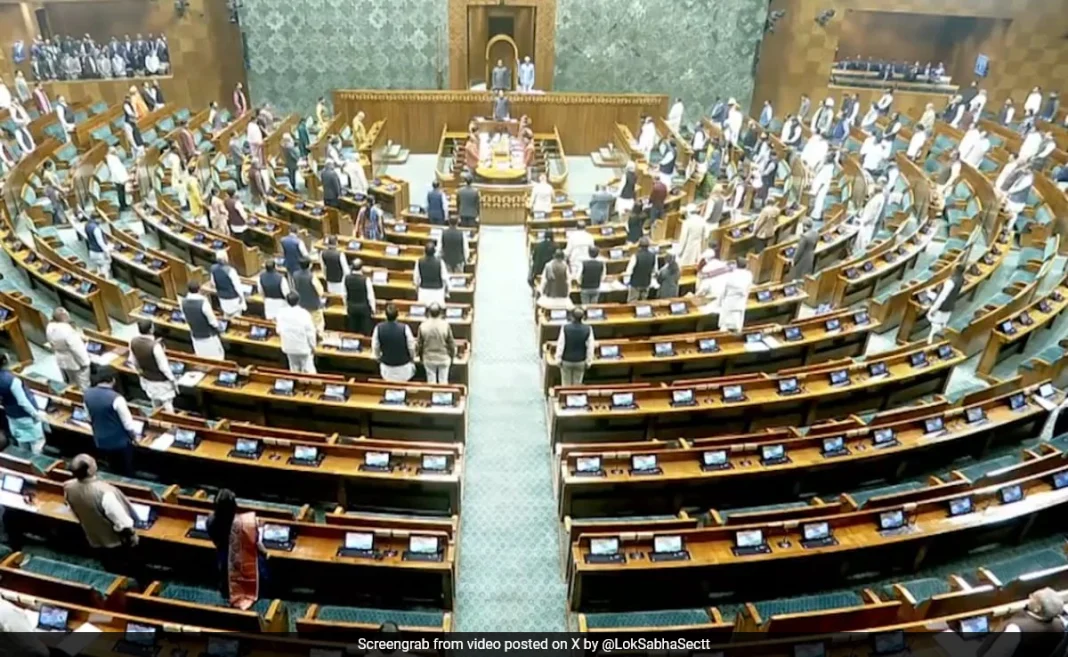The proposed Constitutional amendment seeks to align Lok Sabha and Assembly elections, with debates intensifying between supporters and the opposition.
December 17, 2024: New Delhi: The ‘One Nation, One Election’ proposal is set to move a step closer to reality as the Constitution (One Hundred and Twenty-Ninth Amendment) Bill, 2024 is likely to be tabled in the Lok Sabha today. Once introduced, the bill will be referred to a parliamentary committee for further discussion and consultation.
Also Read: Pakistan’s Debt Surges by PKR 4.3 Trillion Amid Escalating Economic Crisis
Key Developments:
- Bill Introduction: Union Law Minister Arjun Ram Meghwal is expected to introduce the bill and request Lok Sabha Speaker Om Birla to send it to a joint parliamentary committee. The committee, formed based on party representation, will be chaired by the BJP as the largest party. The committee’s initial term will span 90 days, extendable as needed.
- Cabinet Clearance: Last week, the Union Cabinet approved two key bills enabling the BJP-led government to advance its ‘One Nation, One Election’ agenda. The proposal stems from recommendations by a panel led by former President Ram Nath Kovind and including Home Minister Amit Shah.
- Term Synchronization: One bill proposes aligning the terms of state Assemblies with the Lok Sabha, starting with elections held after 2029. For example, a state Assembly elected in 2031 would dissolve in 2034, ensuring synchronized electoral cycles.
- Union Territories: Another bill seeks to amend the governance of Delhi, Puducherry, and Jammu and Kashmir to synchronize their Assembly terms with state and national polls.
- Implementation Timeline: These changes will not come into effect until the 2034 Lok Sabha elections. Once an appointed date is set, Assemblies dissolved early would hold mid-term elections to serve out the remaining term.
- State Ratification Not Required: The Kovind panel asserts the bills do not require state ratification, streamlining their passage. However, proposals to align local body elections with state and central polls will need approval from at least half the states.
- Government’s Argument: The BJP-led government argues that ‘One Nation, One Election’ will “transform the electoral process,” ensuring policy continuity and preventing the “policy paralysis” caused by frequent elections. It also emphasizes reducing governance disruptions and saving costs.
- Opposition Resistance: The proposal has drawn sharp criticism from opposition parties. Mamata Banerjee’s Trinamool Congress has called it an “anti-federal” and “authoritarian imposition” undermining India’s democratic structure. The Congress and other opposition leaders have echoed these concerns, warning of a threat to India’s federalism.
Public Response:
Also Read: French Ambassador Urges Indian Students to Study in France During Visit to IIM Lucknow
The ‘One Nation, One Election’ panel reportedly received 21,000 public suggestions, with 81% supporting the idea, as per a January report by PTI. This data highlights the broad interest and divided opinions surrounding the reform.
As the bill heads to the parliamentary committee, the debate over synchronized elections will only grow sharper, with arguments centered around governance efficiency, federalism, and the practical challenges of implementation.
Also Read: Two Dead, Six Injured in Wisconsin School Shooting; Suspect Found Dead
Tags: One Nation One Election bill, Lok Sabha constitutional amendment, synchronized elections, BJP electoral reform, Mamata Banerjee opposition, governance and policy paralysis, Ram Nath Kovind panel, Indian democracy federalism debate,

